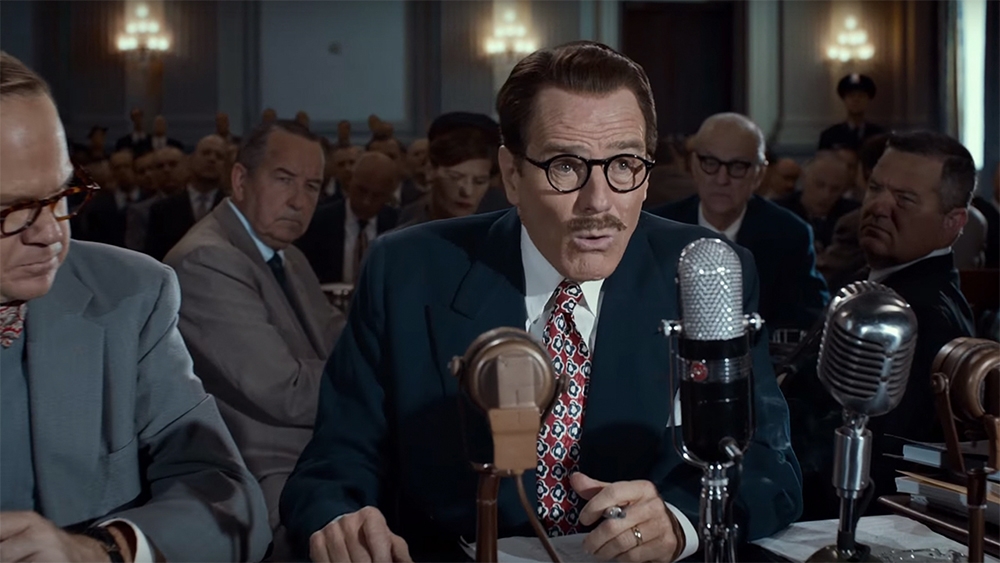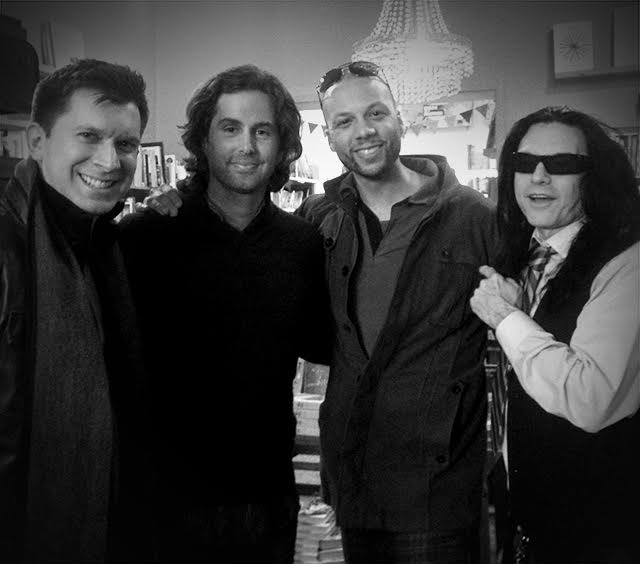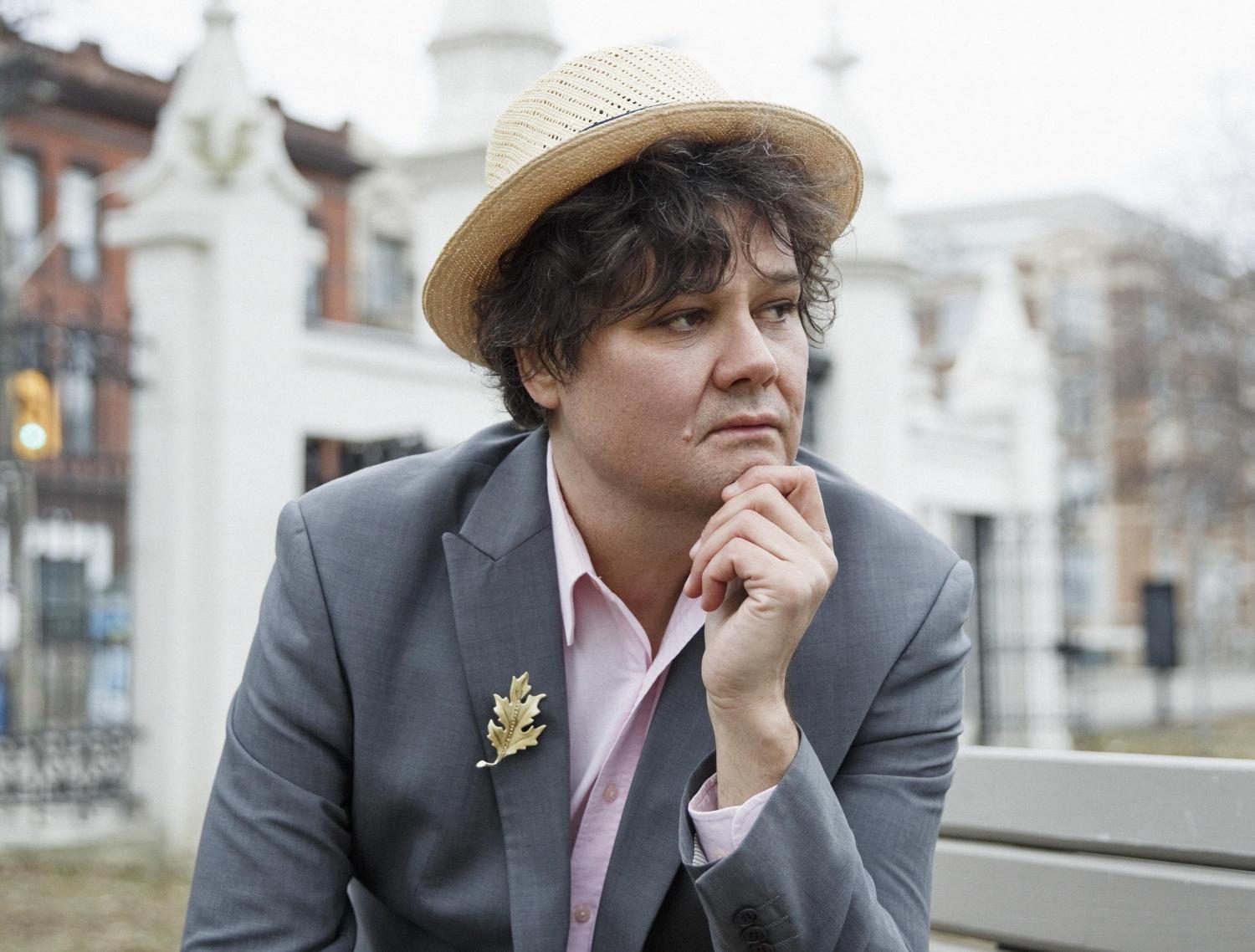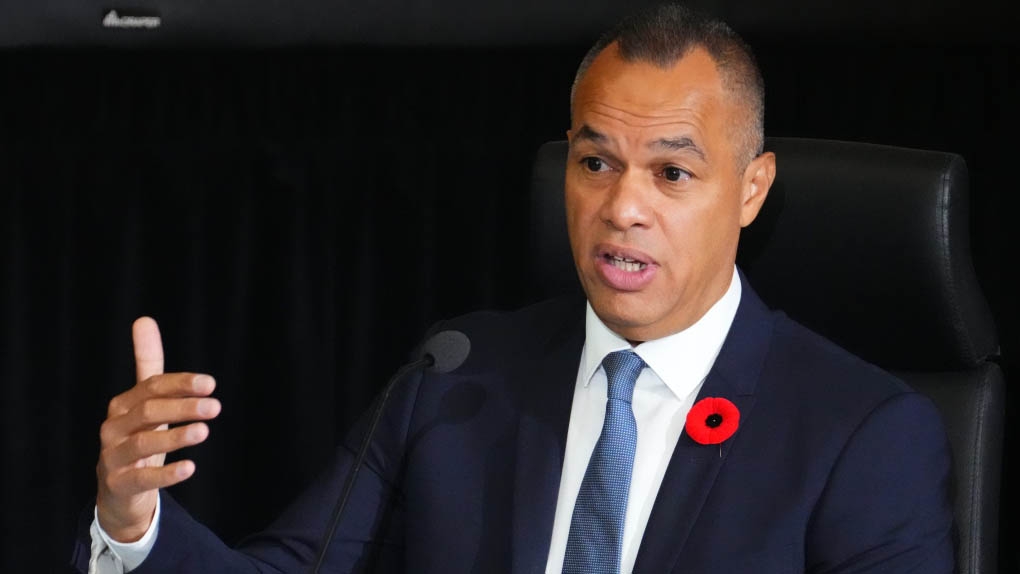
Bryan Cranston makes a name for himself in Trumbo
A scene from Trumbo.
Directed by Jay Roach
Written by John McNamara (based on “Dalton Trumbo” by Bruce Cook)
Produced by Groundswell Productions and ShivHans Pictures
It seems almost quaint now. The politics of Hollywood were once a big deal, rather than an unnecessary interruption into screen time. In the 1940s, newsreels preceded feature films. They showed audiences what was happening overseas as the Cold War began waging. Their footage buried its way into the subconscious of Americans right before they were treated to the latest Gary Cooper movie.
Many Americans, including Hollywood screenwriter Dalton Trumbo, became Communists during World War II, before it was unfashionable to do so. Communists had helped to defeat the Nazis, after all. Their principles of socialism and sharing seemed ideal following Hitler’s genocidal tyranny. The backlash against Communism under Stalin compromised the position of many well-meaning people. None of those people wanted to encounter John Wayne, who was prepared to drag Russia behind his horse.
Trumbo is a good movie about these sentiments. It’s full of Hollywood figures of the era – Edward G. Robinson, Kirk Douglas, Louis B. Mayer. All of these men gather in rooms, eyebrows raised in amusement as they light a five-hundredth cigarette, talking as if they’re all adept at playing the same sordid game of fame and fortune. The amusement stops when a man’s career is threatened. Members of the Hollywood Ten, Trumbo among them, were blacklisted and shunned in polite society. They were named by their peers, who were under contract to the big studios and wanted to keep working. They were publicly shamed in cinemas by gossip pioneer Hedda Hopper (Helen Mirren), who had a son in the navy and thus a personal vendetta. The House of Un-American Activities Committee sought to make an example of “the most powerful influence ever created” – the movies. Naming names was an exercise in survival, and totally unconstitutional.
Trumbo spent almost a year in prison. By the time of his release, his name was no good. He and his associates continued working under pseudonyms. In 1953, he handed a script to screenwriter Ian McLellan Hunter (Alan Tudyk), a princess-and-pauper story starring Gregory Peck and Audrey Hepburn. Jay Roach’s movie picks up the pace in these scenes, as Trumbo pulls off one victory after another at the expense of Hollywood. Under the King Brothers, producers of schlock, the group of blacklisted writers finds its niche. The Oscars begin piling up. Not a one bears Trumbo’s real name, and won’t until 1975.
As Trumbo, Bryan Cranston uses craggy delivery and hunched physique make otherwise routine moments fascinating. Louis C.K., acting as if he time travelled from present day and is trying to avoid suspicion, provides comedic relief as screenwriter Arlen Hird. Writer John McNamara, working from Bruce Cook’s biography, explores Trumbo’s often antagonistic relationship with his daughter Niki (Elle Fanning), and lets Diane Lane beam dutifully as his wife Cleo. Their scenes are flat, and don’t fit with the movie’s reason for being, namely, Trumbo’s cunning and drive to persist as an artist despite his persecution.
The movie joyfully portrays big moments in cinema history. There’s a beautiful shot of Trumbo’s credit on Spartacus, the first to appear on screen in years, reflected in his glasses as a tear comes to his eye. President Kennedy attended the film, crossing protest lines to do so. That powerful gesture ended the Hollywood blacklist era. In archival footage, we see Trumbo make a promise to his daughter, should he ever be exonerated: “I’ll tell her we have our names back again.” Trumbo gives the names, and shows us what they represent.
Trumbo is playing at the ByTowne Cinema through Thursday, December 10th. Visit bytowne.ca for showtimes.













